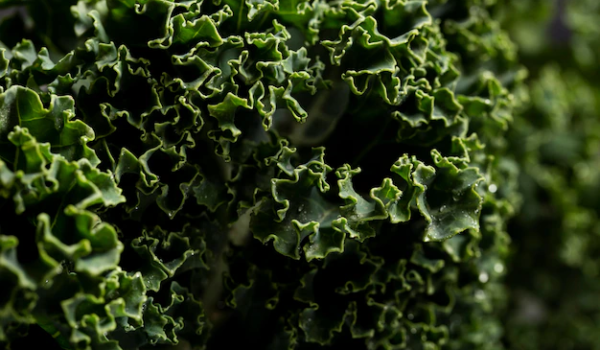Kale, the darling of the health food industry, has captured the hearts of many due to its purported health benefits. However, a question lingers in the minds of the health-conscious: Is kale genetically modified? In this comprehensive guide, we will embark on a journey through kale’s genetics, exploring its origins, variations, and potential genetic modifications. Brace yourself for a kaleidoscope of knowledge!
Unveiling the Origins of Kale
Kale, scientifically known as Brassica oleracea, belongs to the Brassicaceae family, which includes broccoli, cauliflower, and cabbage. Its history dates back to ancient times, with origins in the eastern Mediterranean and Asia Minor. Kale has evolved over centuries through careful cultivation and selection.
The Diverse World of Kale Varieties
Kale comes in various forms, each with distinct characteristics and flavors. These include:
- Curly Kale: The most common type with ruffled leaves;
- Lacinato Kale (Dinosaur Kale): Long, flat, and bumpy leaves;
- Red Russian Kale: Unique red stems and fringed leaves;
- Siberian Kale: Hardy and cold-resistant;
- Chinese Kale (Kai-lan): Popular in Asian cuisine.
The Controversy Surrounding Genetic Modification
Kale’s popularity has raised concerns about genetic modification. Genetically modified organisms (GMOs) are plants whose genetic material has been altered in a way that does not occur naturally through mating or natural recombination.
The Non-GMO Stance
Kale has historically been considered a non-GMO crop. Traditional breeding methods, such as cross-pollination, have been used to develop different kale varieties, preserving its natural genetic makeup.
Examining the GMO Possibility
While kale itself is not genetically modified, it’s essential to consider the broader context. Some related crops, like genetically modified corn or soybeans, can indirectly affect kale if planted nearby. Cross-pollination between these crops and kale can lead to unintended GMO presence.
The Role of Organic Farming
Organic farming practices prioritize the avoidance of GMOs. Many organic kale producers adhere to strict regulations to ensure their crops remain GMO-free. This provides reassurance to consumers who are concerned about genetically modified foods.
Health Implications of Kale Consumption
Kale has gained acclaim for its exceptional nutritional profile. Rich in vitamins, minerals, and antioxidants, kale is a powerhouse of health benefits. Consuming non-GMO kale can provide various advantages, such as:
- Nutrient Density: Kale offers a wide range of essential nutrients;
- Antioxidant Properties: It combats oxidative stress and reduces the risk of chronic diseases;
- Anti-Inflammatory Effects: Kale may help reduce inflammation in the body.

Making an Informed Choice
In the quest for healthy eating, making informed choices is paramount. While kale itself remains non-GMO, the potential for cross-contamination and indirect GMO presence underscores the importance of sourcing your kale from trusted suppliers, particularly if you have concerns about genetically modified foods.
Kale Varieties and Characteristics
| Variety | Characteristics |
|---|---|
| Curly Kale | Ruffled leaves |
| Lacinato Kale | Long, flat, bumpy leaves |
| Red Russian Kale | Unique red stems, fringed leaves |
| Siberian Kale | Hardy and cold-resistant |
| Chinese Kale | Popular in Asian cuisine |
The Cultivation Process of Kale
Kale’s journey from seed to table involves a meticulous cultivation process. It begins with selecting the right kale variety and germinating seeds. These seeds are then planted in nutrient-rich soil, and proper care is taken to ensure optimal growth conditions. Kale is known for its hardiness and ability to thrive in various climates, making it a popular choice for home gardeners and commercial farmers alike. Understanding the cultivation process can provide valuable insights into the quality and potential genetic modifications of the kale you consume.
Genetic Modification in Agriculture
To understand the presence or absence of genetic modification in kale, it’s essential to delve into the broader landscape of genetically modified crops. Genetic modification in agriculture involves the introduction of foreign genetic material into a plant’s DNA to impart specific traits, such as resistance to pests or herbicides. While kale itself is not genetically modified, the discussion surrounding GMOs in agriculture impacts the entire food supply chain, including the potential indirect effects on kale.

Kale’s Nutritional Superiority
Kale’s reputation as a nutritional powerhouse cannot be overstated. In this section, we’ll take a deep dive into the vitamins, minerals, and antioxidants that make kale a superfood. From its high vitamin K and C content to its rich reserves of calcium and fiber, kale offers a myriad of health benefits. Understanding the nutritional composition of kale can help you appreciate its role in your diet and motivate you to incorporate more of this leafy green into your meals.
The Future of Kale and Genetic Modification
As the world of agriculture and genetic modification continues to evolve, it’s worth contemplating the future of kale and its genetic integrity. Advances in biotechnology raise questions about the potential for genetically modified kale varieties in the future. Additionally, consumer demand for non-GMO products and transparency in labeling will likely influence the kale industry’s trajectory. Staying informed about developments in agriculture and food labeling will empower you to make conscious choices about the kale you consume in the years to come.
Conclusion
In the kale vs. GMO debate, kale stands strong as a non-GMO vegetable. Its rich nutritional profile makes it a valuable addition to a healthy diet. However, it’s crucial to remain vigilant about the sources of your kale to ensure you reap the full benefits of this leafy green without unintended genetic modifications.
FAQs
Organic kale is typically non-GMO, but it’s essential to check for organic certifications to be sure.
Yes, you can grow non-GMO kale in your garden by selecting heirloom or non-GMO seeds and avoiding cross-contamination with GMO crops.
Research on GMO kale is limited, but concerns primarily revolve around potential cross-contamination.
Regular kale consumption can boost your nutrient intake, enhance antioxidant protection, and reduce inflammation.
Look for organic markets, local farmers’ markets, and suppliers with GMO-free certifications to ensure your kale is non-GMO.
